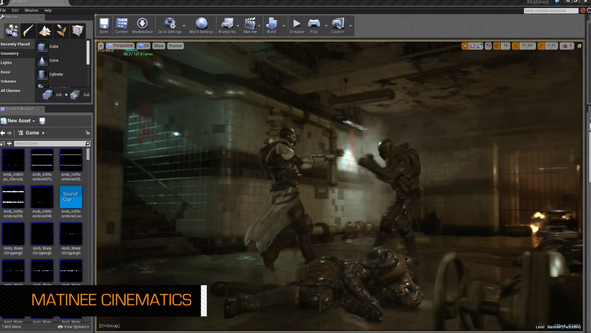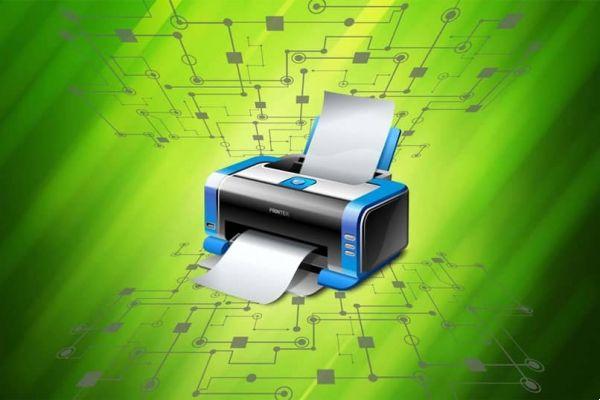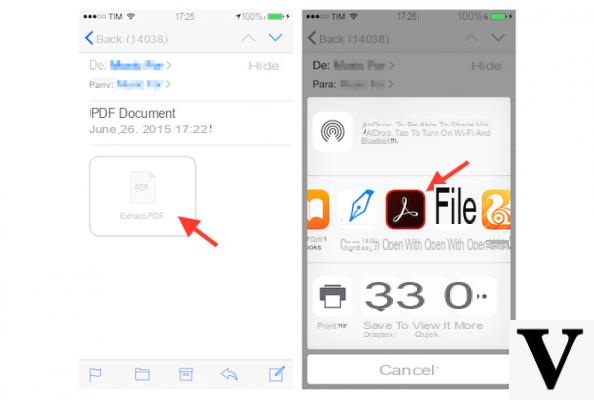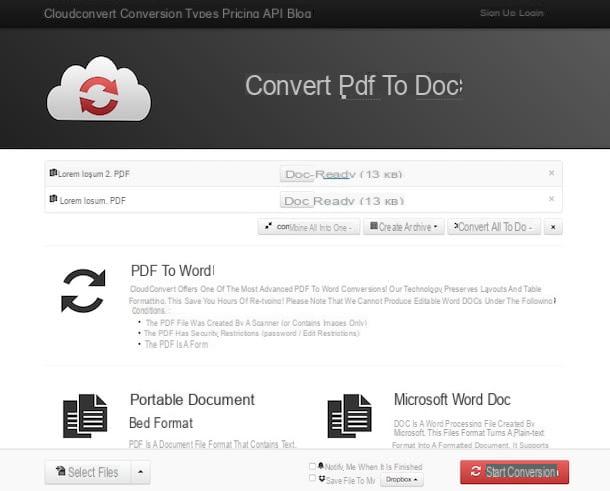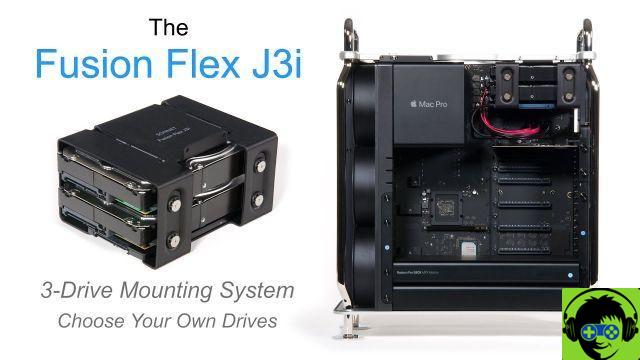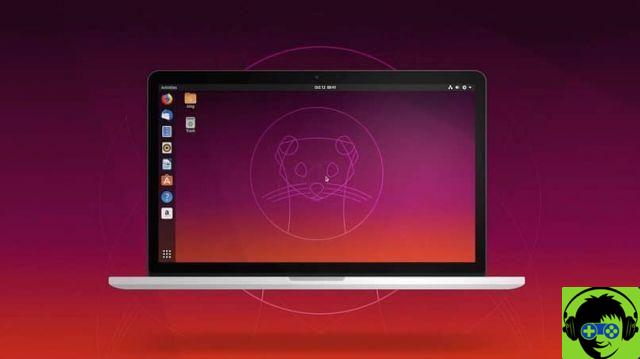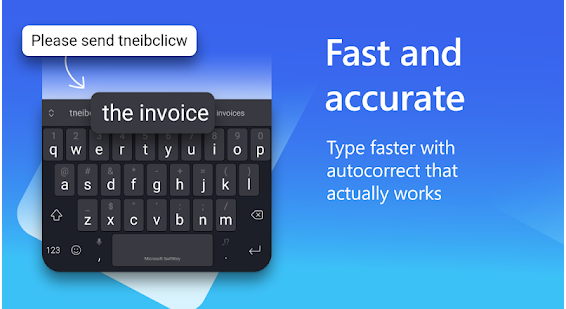🙋 Direct support and advice in our Telegram group
📹

Again, Sabrento gave us the opportunity to test one of its most established SSD, after the top of the range Sabrent Rocket 4 Plus and the classic Sabrent Rocket, it's time for another SSD Nvme M.2 4.0.
Il Sabrent Rocket Q4 da 2tb, for an SSD Nvme 4.0 it perfectly covers the market slot that is interposed between the two discs mentioned.
It will be considered one of the best SSDs of the moment? Below we will analyze the characteristics and results of our tests!
Sabrent Rocket Q4 2 TB • Technical specifications
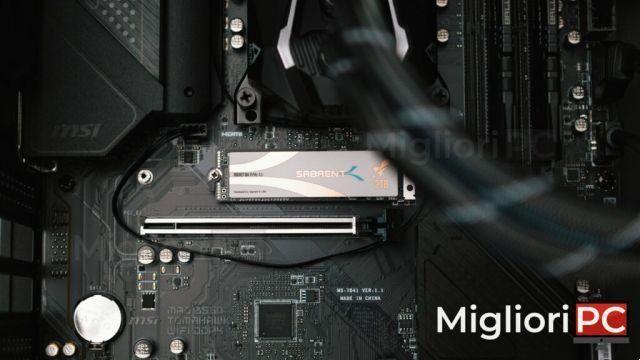
Starting with some technical specifications, bearing in mind that it is a SSD Nvme that takes advantage of the line PCIe 4.0, making it certainly more elitist and suitable for more recent hardware components.
Starting with the motherboards AMD 500 (X570, B550), Intel 500 Series (Z590, Intel B560)in fact, it will be possible to have more or less slots with lines PCIe 4.0, remaining however compatible with PCIE 3.0 lines.
From data sheet, according to the website of Sabrento, the performance of this disc should respect a speed of 4800 MBps sequential reading and a 3600 MBps sequential write, figures that are actually fully respected according to our tests.
In more technical terms, it might interest you to know that the Sabrent Rocket Q4 uses a controller Phison E16 with memories Micron 96L QLC, probably one of the most reliable and common on the market for QLCs.
Its main feature, which results in its performance inferior to that of others SSD Nvme M.2 4.0, is precisely the implementation of type memories QLC (Quad Level Cells).
It is well known that such memories, structurally, do not allow to achieve performances on a par with TPA and therefore of discs such as the Rocket 4 Plus, however, it grabs that slice of the market that lies between SSD Nvme 3.0 ed SSD Nvme 4.0 with memories TPA.
It is available in just three memory denominations: 1 TB, 2 TB e 4 TB and depending on the capacity, the performances can vary considerably, as you can see in the following table:
| SSD size | Label speed |
| 1TB | 4700/1850 MB/s (Seq. Read/Write) |
| 2TB | 4800/3600 MB/s (Seq. Read/Write) |
| 4TB | 4900/3500 MB/s (Seq. Read/Write) |
Finally, it is not to be forgotten that it offers one five-year warranty if registered on the official website of Sabrent.
Sabrent Rocket Q4 2 TB • Test e benchmark
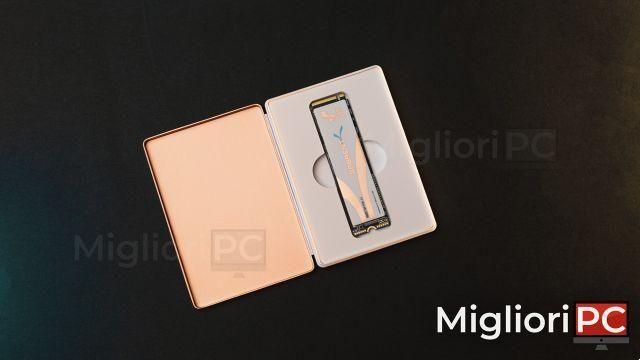
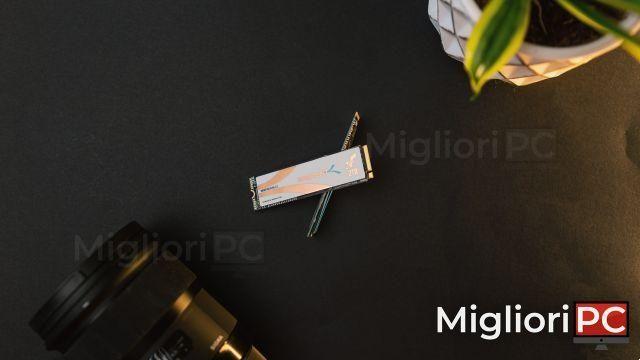
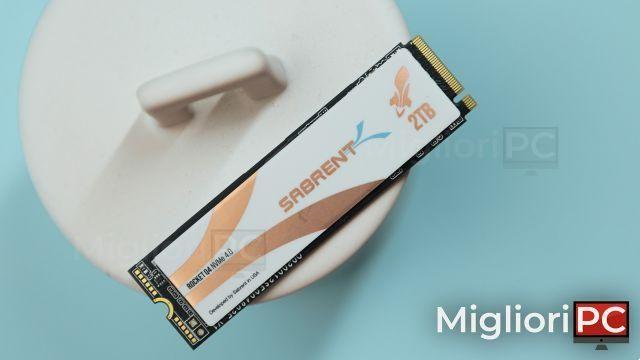
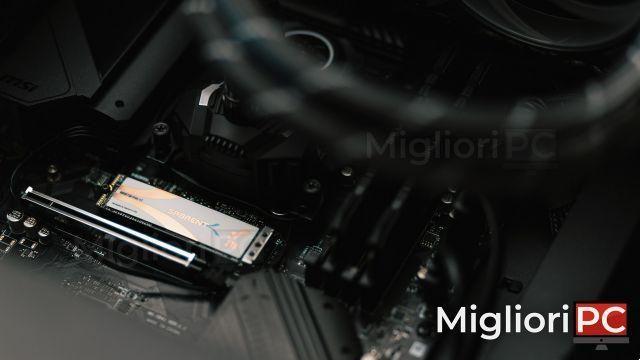
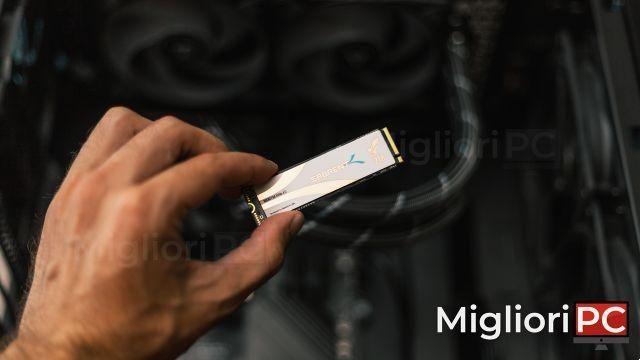
As usual, to test this the Sabrent Rocket Q4 we carried out various tests on different platforms, as well as the most used: CrystalDiskMark, ACT Disk Benchmark ed Anvil’s Storage Utilities.
Here we finally reveal the data that we were able to observe, from which we will draw deductions and whether or not it is worth buying, in comparison with the other discs SSD Nvme that we have tested so far.
Sabrent Rocket Q4 2 TB • CrystalDiskMark
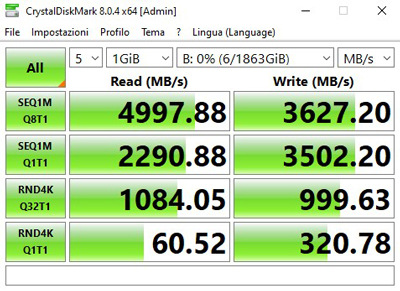
The first tool that we are going to analyze is precisely CrystalDiskMark, a simple but concise executable that already selects the character of this Sabrent Rocket Q4.
We rely on the 1GB transfer repeated several times, twice with speed sequential and and two random, both in reading and in writing.
According to the graphs you can observe, the Sabrent Rocket Q4 Nvme exceeds what was declared by the parent company with ben 200 MBps waste.
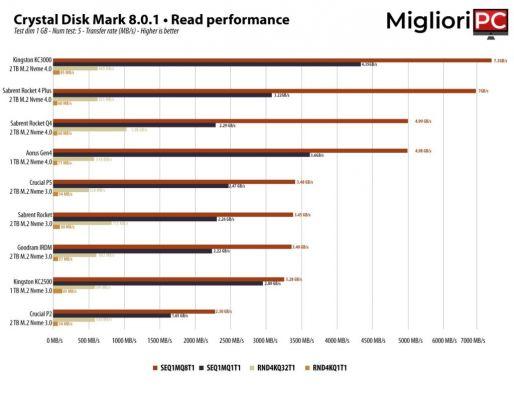
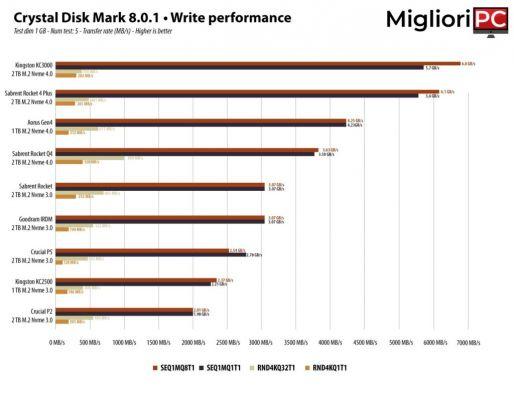
From comparison with others SSD Nvme tested, it seems to resemble theAorus Gen 4, a rival with whom he will compete head to head for the rest of the tests.
If, however, in sequential reading it seems to be just higher, in sequential writing it approaches but remains lower than theAorus Gen 4, therefore the doubt spontaneously arises as to which of the two memories it is worth buying.
At the level of price, moreover, they are not very far, perhaps the Sabrent Rocket Q4 gets along with a better rapporto qualità / prezzo, given the few tens of euros that separate them.
Sabrent Rocket Q4 2 TB • ATTO Disk Benchmark
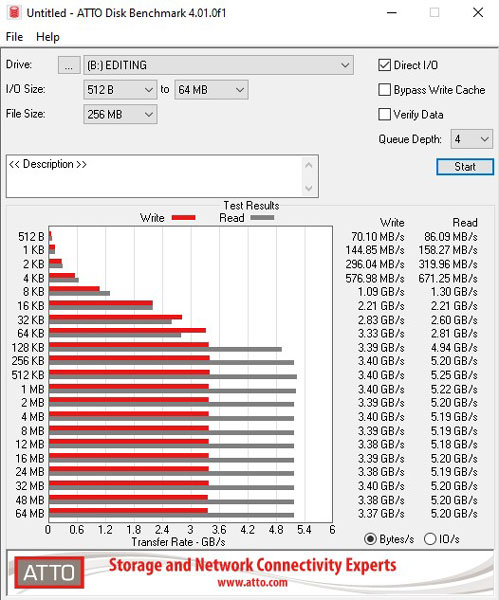
The second tool we are used to using is ACT Disk Benchmark, which analyzes the transfer of packages data of various sizes and draw up a scale da 512 byte a 64mb.
Significant data can be observed in the range between 4 kilobytes e 4 megabyte, band in which the SSD Nvme perform better.
Beyond 4 MB, the disk tends to maintain a certain stability in transfers, a bit like all disks of this type do.
Once again the Sabrent Rocket Q4 stands head to head with theAorus Gen 4, which leaves him no rope, especially in the phase of writing, marking a rather sharp gap.
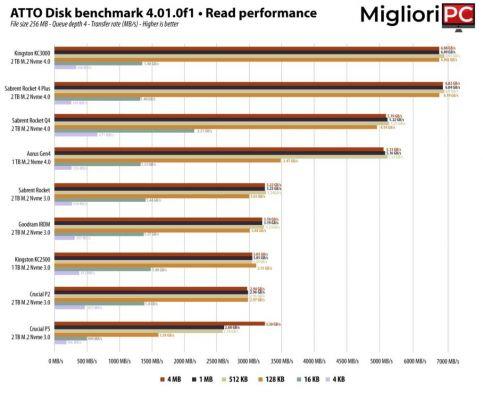
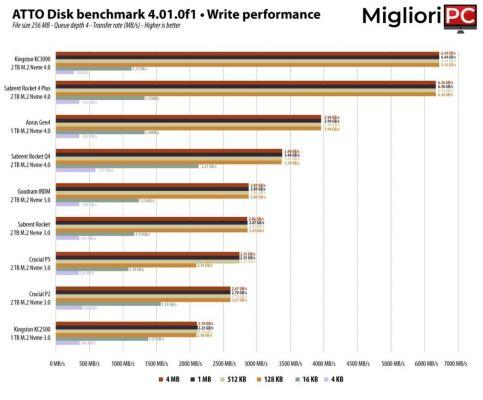
If we were to compare him with the direct superior, however, things get very hard for the Rocket Q4, clearly lower, almost double, compared to the older brother Sabrent Rocket 4 Plus, which thanks to TLC memories travels on the threshold of 7000 MBps.
In turn, the positive departure from the predecessor is significant Sabrent Rocket, where the limit is in connectivity PCIe 3.0.
Sabrent Rocket Q4 2 TB • Anvil’s Storage Utilities
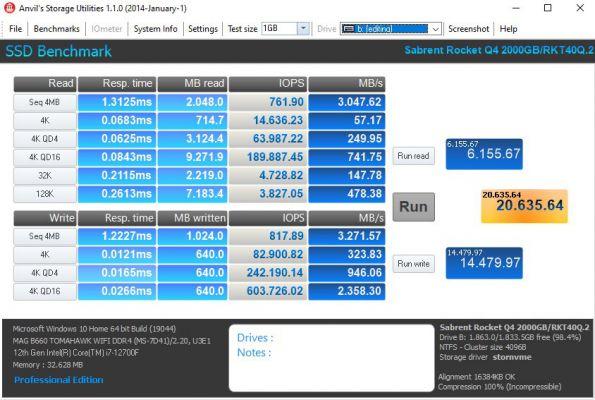
So we come to the last benchmark we use for our reviews: Anvil’s Storage Utilities, yes one one score to our SSD Nvme also based on operational latencies and on IOPS, the input / output performance per second.
This time it seems to be the Sabrent Rocket Q4 to dominate the home competitor Aorus, with over 1000 points of detachment, totaling 20.635.64, a result that, once again, is halfway between the Sabrent Rocket 4 Plus and Sabrent Rocket.
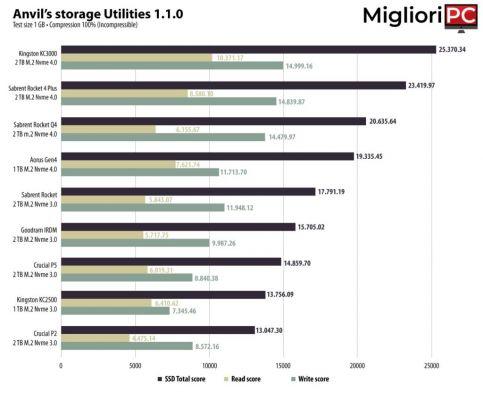
Despite the victory in this last tranche, it will be the Rocket Q4 a valid purchase for an average user?
Sabrent Rocket Q4 2 TB • Conclusion
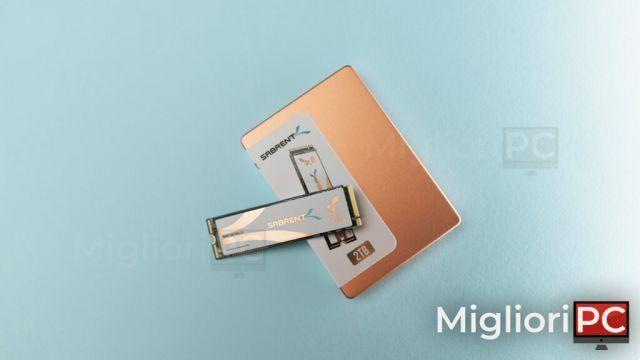
The time has come to take stock of the Sabrent Rocket Q4 SSD Nvme 4.0 and it can probably be summed up with the statement "it is neither meat nor fish".
In my opinion it is a great SSD, valid for those who want to give a good wake up to their PC, but does not offer top-of-the-range performance (not that it intends to be).
Compared to the reference declared by Sabrento, excels in performance, so it's already a good plus.
Sure, a Nvme 4.0 SSD with TLC memories such as Sabrent Rocket 4 Plus remains unbeatable but is still well positioned to be suitable for anyone, being moreover compatible with consoles latest generation like PS5.
Personally, dealing with photo and video production professional, I don't feel the need for a higher speed drive as, compared to a SSD Nvme 3.0 or an old man SSD SATA, the difference in performance is huge.
However, we regret to admit that this is not a best buy, given the presence of the Crucial P5 Plus which, in its version from 1 TB, it even costs less than the Sabrent Rocket Q4 but it guarantees significantly higher performance.
Thank you again Sabrento for providing us with a further yardstick for our benchmarks, but, for those who want top-of-the-range performance, it must be said that at the current situation the Kingston KC3000 remains, more recommendable than the top of the range Sabrent Rocket 4 Plus as it has better performance and a much lower price.
A big plus of Sabrento, however, is the fact that often theirs SSD Nvme are discounted on occasions like Black Friday o Prime Days, therefore we advise you to enter our Telegram offers channel to be always updated!





![[Solved] Headphones connected to PC but audio coming out of the Speakers? -](/images/posts/ef3c1bf530218782f3bf61ff7d2e07d1-0.jpg)





